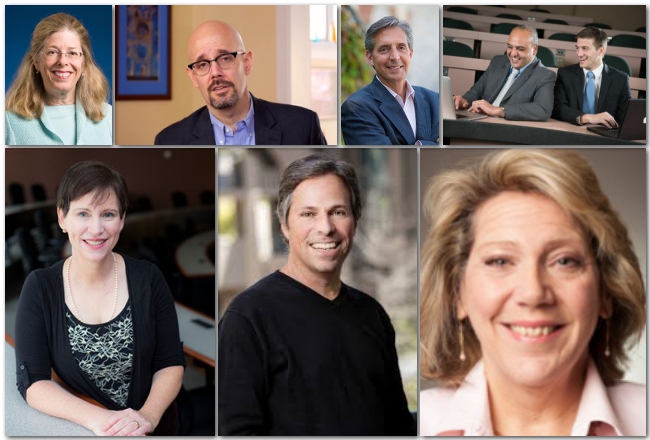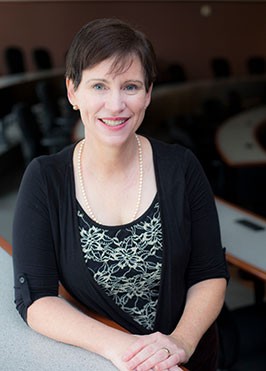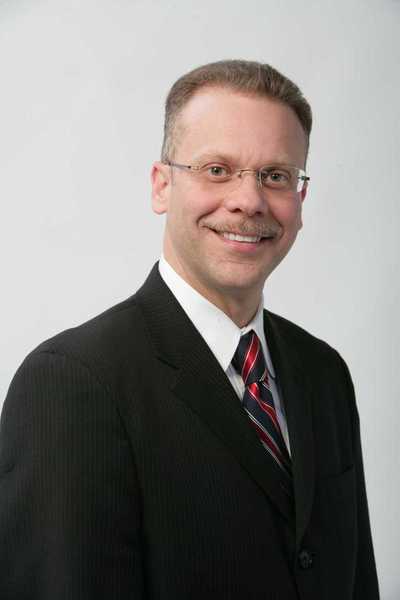Any scholar can pen a lecture or dole out readings. That’s the bare minimum. Leaving a lasting impression…that’s the art of teaching. It is posing the right question in the right context at the right time. It is conjuring images and imparting stories that make lessons essential to everyday life. Even more, great teaching is personifying a passion so profound that students take more than a passing interest — they’re driven to take action.
Great teachers take many forms. Some are mentors who channel their students’ energies and slowly guide them to the possibilities. Others are sticklers, whose heavy workloads and high expectations expose their charges to the precision and grit they’ll need to thrive after graduation. Regardless of approach, they are change agents and difference-makers. How students define great teaching is the ultimate Rorschach on how they view their education…and themselves.
EVEN STUDENTS WHO GET A C LOVE HER!
At Emory University, Allison Burdette is one of those special teachers. A business law professor by trade, Burdette was honored by Casey Rhode, a member of the Class of 2017’s “Best & Brightest Business Majors,” as someone who does more than know her material and support her students.
“She prepares students for life, not for a job or a test,” Rhode explains. “She comes to each class with an unrivaled enthusiasm, no matter how boring the topic is and without the complacency that comes with teaching the same material for four straight hours, every semester, for over 15 years. She is still the only professor I have had who is loved just as much by students who get a C in her class as by ones who get an A.”
This year’s favorite business professors were able to reach their students in several ways. At the University of Richmond, Emily Foo encourages her classmates to take a class with Bill Bergman — and not just for how he makes advertising come alive with his 30 years of experience in the industry. She also respects how he treats his students as adults.
“We are given the opportunity to use our internships and own experiences to analyze case studies and address real situations with our own solutions,” she observes. “Outside of the classroom, Professor Bergman’s door is always open; he never fails to do all he can to help his students.”
MARYLAND PROF DEMANDS STUDENTS STEP INTO THE SPOTLIGHT
Dr. Sandra Loughlin treats her University of Maryland students the same way…with a twist. Sheryl Sandberg may urge her followers to ‘lean in,’ but Loughlin’s students are pushed to ‘get up front.’ Here, students are given independence to create and the credit for doing the “dirty work,” says Sylviane Alexion. It doesn’t stop here, she adds. “Dr. Loughlin also goes out of her way to put her students in front of important people with the power to adopt our solutions and advance our careers.”
Many professors celebrated by the 2017 Class also went out of their way to help students step outside themselves. Cornell’s Deborah Streeter is one such teacher says Zechariah Hintz. “Professor Streeter has an ability to put on someone else’s shoes, metaphorically, and look at the situation or problem at hand from their perspective,” he states. “This talent allows her to connect with her students on a deeper level and allows her to more effectively teach and give them advice.”
How is she able to do this? Simple: Her caring nature creates trust. “I have never felt so welcomed and valued as a human being, let alone one of many students in a room, as I feel when I can talk with, or learn from Professor Streeter,” adds.
“YOU GET WHAT YOU DESERVE. EARN IT.”
By widening their frames, the best teachers also emboldened students to ask questions and probe the status quo. At Northeastern University, for example, Miranda Beggin credits Professor Dennis Shaughnessy with helping her to “continuously question my worldview and consider ways to improve the world through business.” At the same time, such professors have also turned the mirror back on students themselves. At the University of Maryland, Mimi Verdonk considers herself “lucky” to have had Dr. Gerald Suarez as a teacher. Suarez didn’t just dispatch content, she says, but also gave her the tools to figure out who she wanted to become.
“With Dr. Suarez, there’s always a deeper meaning and time allotted for your own personal reflection,” Verdonk reminisces. “He isn’t content with you memorizing information; he encourages you to explore your passions and to learn more about yourself and what makes you tick. Dr. Suarez, with his jokes and warm heart, is always there to encourage you, to test you and to challenge you to be your best self. I walked away from his class with a greater understanding of who I am as a person and what kind of leader I will be in the business world.”
If one theme unites these favorite professors, it would be their mission: Prepare their students for the hardships and ambiguities of the modern work world. Some, such as “the infamous” Dr. Herbert Mayo, see their roles as instilling toughness. He even uses a regular line during classes at the College of New Jersey to reinforce his larger message: “You get what you deserve. Earn it,” says Kaiser Tan.
BUILDING A PERSONAL BRAND…AND A NETWORK
Others focus on simulating the work place. At Southern Methodist University, two accounting professors —Dr. Barry Bryan and Dr. Greg Sommers —rely heavily on experiential learning. Bryan applies a project-driven model, says Laura Kohner, that includes a strong dose of accounting software and teamwork. Similarly, says Megan Kohner (Laura’s sister), Sommers teaches “abstract” concepts in context. “He provides real financial statements to show how accounting information is actually presented to investors in order to reflect the story behind the numbers and the true impact on the business’ future,” she says.
At Michigan State, James Carlstedt admires Helen Dashney because she looks far beyond academics to students’ long-term career prospects. “She focuses on building a personal brand and reputation, while stressing the importance of setting life goals for yourself and building a professional network of contacts that may help guide and lead you to success,” he points out. “I believe these skills are unparalleled and I’m forever grateful for her dedication to us students.”
Some professors even go so far as to introduce their students for the darker side of business. That was the forte of Professor Robert Prentice, who teaches “Law, Ethics and Business” at the University of Texas. Charismatic and reassuring, Prentice aired the uncomfortable and unfair aspects of business so students would know what to do when they’re someday faced with their own moment of truth.















Questions about this article? Email us or leave a comment below.